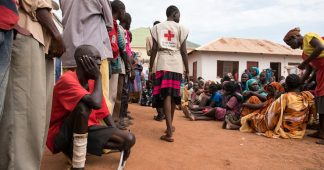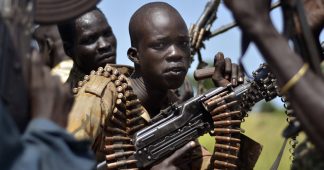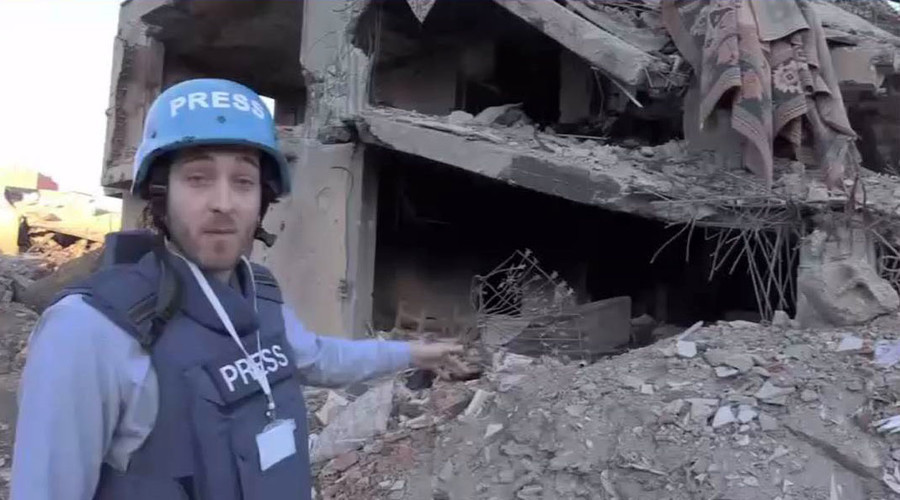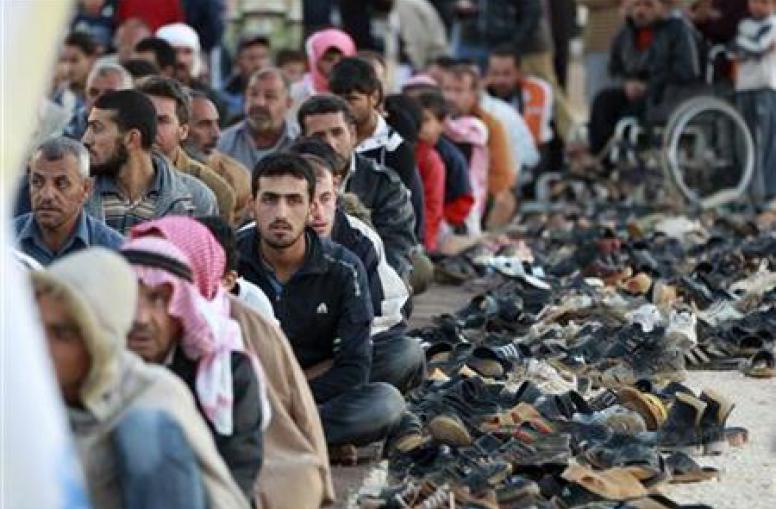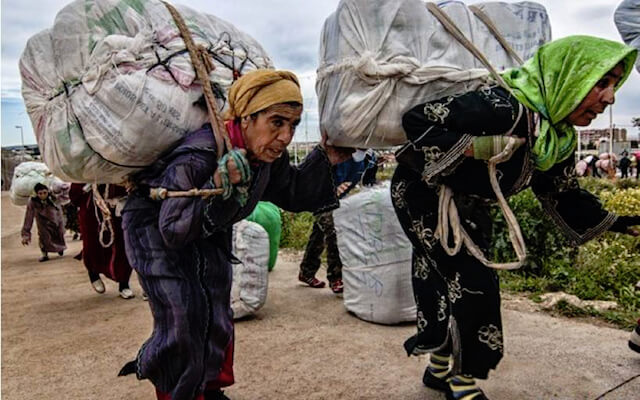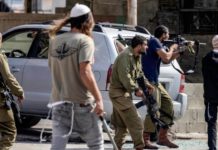According to a report of the UN, the 72% of refugee women in civilian protection camps of the capital have been raped.
By Pablo L. Orosa
Source: Rebelión / The Dawn News
October 31, 2017
A shower. Something to eat. And someone to talk if they want to. It is not much, just a desperate measure, but for the dozens of youths who ran from the war at South Sudan and crossed the Ugandan frontier is something to hold tight. This care center for women, deployed by Doctors Without Borders (DWB) in one of the extremes of the IMVEPI refugee camp, has attended more than 190 cases of sexual assaults between May and July.
From the beginning of the conflict, in December of 2013, violence was used as a war tool in South Sudan. As an “strategy to terrorize, degrade, shame and humiliate the victims and the groups they represent”, as it was said by the United Nations High Commissioner for Refugees office.
The international mission deployed in the capital couldn’t prevent the brutal aggressions carried on against hundreds of people, mostly women and children of the Nuer ethnia, who sheltered in Thongpiny or Jebel. The Tiger Battalion, an easily recognizable special unit of the Presidential Guard, was responsible for many of those atrocities: “Soldiers started calling us, they said ‘If you don’t come with us, we will start shooting’. They had weapons. When we got to their position they started hitting us with a belt. Then, they raped us… two men raped me and other two raped my sister”, tells Veronica* in one of the testimonies gathered by International Amnesty for the report “Do not remain Silent: Survivors of Sexual Violence in South Sudan Call for Justice and Reparations”.
Nyachah*, 36 years old, was approached by a group of soldiers of the Tiger Battalion when she had gotten out of the UN base to get food for her children. “They talked to me in dinka and I answered in Arab. Then they said, “she must be a Nuer women”. Some of them proposed to kill me, others to rape me. One of them said: “it is just a woman, and we are not looking for women”. Finally they decided to rape. All of them raped me… and left me unconscious after that”. Amnesty International Investigator, Alicia Luedke, assures that women “are conscious” that they can be raped when they leave the camps managed by the UN, but “they need to do so to help their children survive”.
While firstly only those troops loyal to president Salva Kiir were the ones that perpetrated most aggressions, soon the Nuer troops loyal to vice president Riek Machar also took sexual violence as a part of their war armament. The White Army was a nightmare for dinka women, as the Tiger Battalion was for nuer women. Bor, located 200 kilometers north to Juba, is the scenery of their excesses. “The White Army shot my husband in the head. Me and my children started crying, but then they threatened me: “if you cry, we will kill your children”. They allowed us to leave, but we crossed another group on the way… one of them said that I was pretty, approached me and asked if he could have sex with me. I didn’t respond. So he forced me into a house near the road and raped me. When it was over, he decided to escort me and my children to the UNMISS camo. Then he turned around and left”, relates Achuel.
Achuel is convinced that she was assaulted for her ethnicity. “I was violated because I am dinka and they are nuer. They want to kill all the men and assault their wives, mothers and daughters like in 1991…”. Sexual violence has become part of the Art of War for too long.
“These are premeditated acts of sexal violence at a large scale”
In only one year, between 2015 and 2016, sexual aggressions derived from the conflict have multiplied a 61% in South Sudan. And in 2015, 72% of the refugee women in civilian protection camps of Juba assured to have been sexually abused since the beginning of the conflict. These are, according to the regional director of International Amnesty for Western Africa, Horn of Africa and the Great Lakes, Muthoni Wanyek, “premeditated acts of sexual violence at a large scale”. A “terror strategy”, adds luedke, which seeks to “humiliate and degrade victims” leaving consequences for life: beyond physical wounds, sexual aggressions provoke psychological disorders, and leave many women stigmatized and repudiated by their community.
Josephine and Joanna have lived with these ghosts for too long. With their own ghosts, with the horrors they had witnessed while they fled South Sudan, and with the dozens of girls which arrived at the IMVEPI. They are usually the first to hear the problems of the girls that arrive. Of the girls who want to talk at least, says Stella, one of the workers of the DWB clinic to which women are sent, since many of them “don’t talk and don’t look at you in the eyes”. “It is difficult to solve the traumas of women who have been abused. They have a hard time telling what happened, and in many cases we have to figure out what happened to them for the symptoms they have. Because they are pregnant or because they have infections”, says Christine, one of the team psychologists.
“This morning in the clinic we had a woman with this problem. A girl that doesn’t talk. “They took my sister to the bushes. I was grabbed by another man”, says the older one, the one that talks, who isn’t even fifteen years old. She doesn’t even know who abused her. Some villagers maybe. They do know that soldiers raped her mother and murdered her brother. When they arrived here, many of the refugees bring their war-caused ‘traumas’ along. Their silences”, tells Christine.
Because the wounds, the diseases -syphilis, chlamydia, syphilis, Hepatitis B- can be cured. Even unwanted pregnancies, if they don’t surpass the 16 weeks, can be interrupted. In the clinic, the workers of the DWF are prepared to face them. “Psychological problems, are the most difficult”, says Stella. There is no medicine to overcome the horrors of war. Only two girls, Josephine and Joanna, with the giving of knowing how to hear.
*Some names in this article have been changed to preserve the identity of victims.
